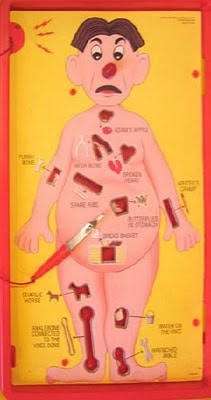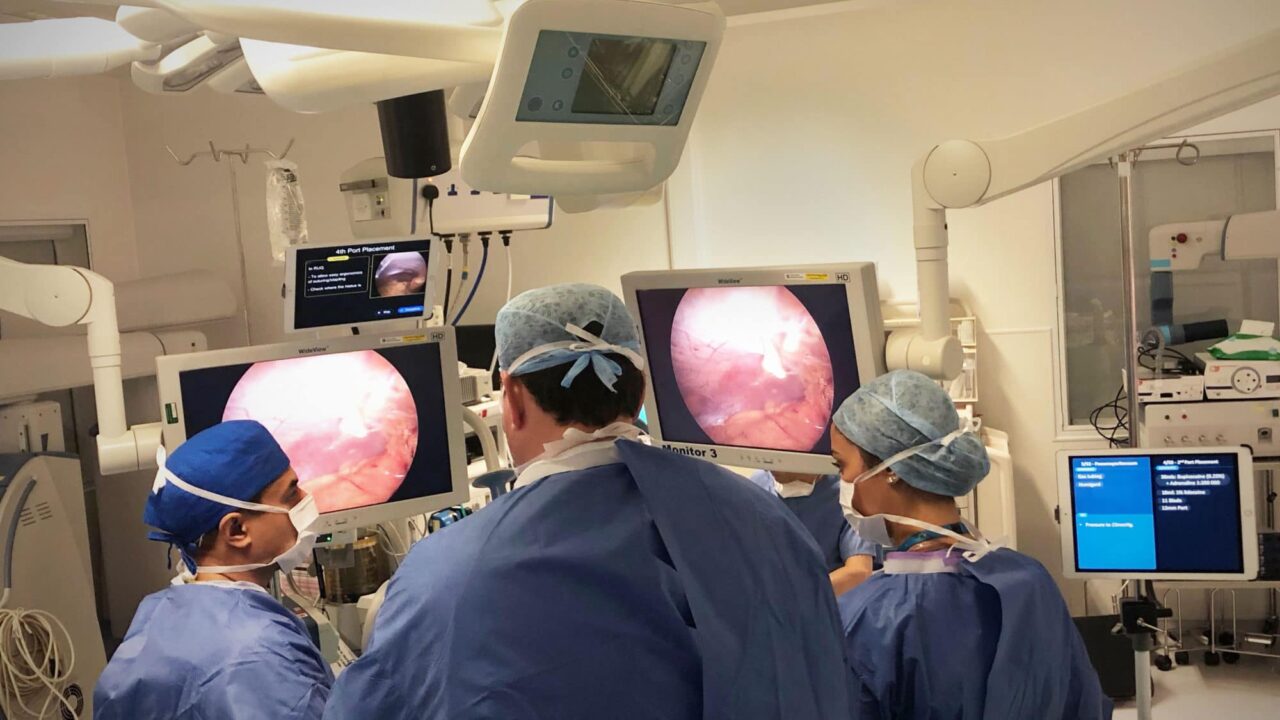Tweezers carefully poised, the surgeon gingerly attempts to extract the patient’s funny bone. But the hand slips — buzz! — and another round of the classic board game Operation is lost.

At best, the game, which first went on sale in the 1960s, might identify children with the steady grip and hand-eye coordination of a future surgeon.
Today, NVIDIA GPUs are powering a vastly more sophisticated set of surgery training tools that can walk surgical residents and medical teams step by step through a procedure.
Built by U.K.-based startup Digital Surgery, the mobile app Touch Surgery helps medical professionals learn procedures or prepare for surgical cases with simulations and quizzes.
Now used in more than 150 U.S. residency programs, the app has a reference library of surgical maps and a virtual human patient that trains surgeons to make the right decisions at the right time during a procedure.
Digital Surgery, a member of NVIDIA’s Inception virtual accelerator program, is also developing an operating room tool called GoSurgery. It improves coordination between surgeons and their teams to manage workflows and aid in real-time operating room decisions.
“We know humans aren’t perfect, so we use digital tools to help them improve their capacity,” said Andre Chow, co-founder of Digital Surgery.
No One Asks Who’s the Best Pilot on a Route
When a person needs surgery, the first question they ask is, “Who’s the best surgeon?”
But this mentality doesn’t apply to every industry. Airplane pilots are responsible for the lives of everyone on board — but it’s not typical to think “Who’s the best pilot?” before buying a ticket and stepping onto a flight.
That’s because the airline industry has worked hard to provide a standard level of safety for pilots using tools like autopilot and radars, says Chow. “We believe that should be the case with surgery as well.”
Yet, when Chow and co-founder Jean Nehme were training to become surgeons, they noticed that every surgeon likes to do things slightly differently.
Digital Surgery aims to close the disparities in surgery quality around the world by bolstering the doctors’ skills with powerful software. This technology gives surgeons an interactive way to rehearse operations digitally and learn best practices across different surgical specialties.
Brain Training for Surgeons
The company’s first product, the Touch Surgery app, has a library of surgical videos and simulations with a virtual human patient. The app hosts more than 200 simulations across 15 surgical specialties including orthopedics, neurosurgery and oral surgery.
Surgical residents and healthcare professionals can use the free app to learn, review or rehearse a procedure. Rendered on NVIDIA Quadro GPUs, the simulations test users’ knowledge about correct operating technique. Chow calls it “brain training for surgeons.”
It’s been validated in more than 15 different research publications as an effective mobile training tool. The Digital Surgery team sees the potential for its applications to serve as training aids in areas of the world lacking safe surgical services.
Using simulation footage from the app’s virtual surgeries and hundreds of thousands of surgical videos as a training database, the company developed its second product, the GoSurgery AI platform.
GoSurgery uses operating room camera streams that are fed into its neural network. The algorithms determine which instruments are being used and what stage of the operation the surgeon is in. Each team member has a screen displaying guidance based on the neural network’s real-time inferences.
This operating room platform is powered by NVIDIA embedded technology. It’s currently being used at several sites in the U.K., with plans to expand to the United States as well.
So far, the Digital Surgery team has deployed this solution for eye surgeries and bariatric procedures. They’re also starting to work on colonic surgery and orthopedic operations, among others.
https://vimeo.com/285131805
